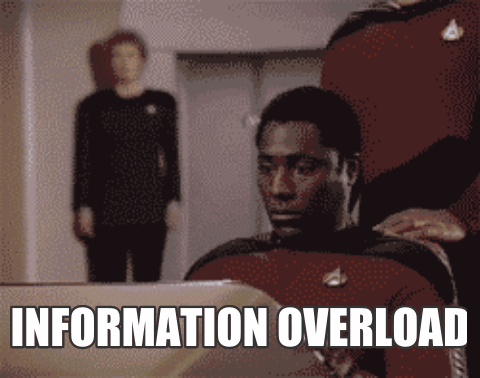Keeping a handle on the vast and ever-changing world of social media enough to capture your fans attention is no easy task, and in the case of Facebook, their recent alteration to the algorithm only makes things harder. With the correct usage of messenger, however, artists can get ahead of the social media game.
______________________________
Guest post by Sam Taylor of The Message
Managing social media can seem sometimes seem a never-ending challenge. Social media can be exhausting: a lot of noise and a lot of people competing for attention.
As a marketer — or as someone running a Facebook fan page — it can be hard to cut through this noise and get your content seen by fans. For fans it can be a messy experience — name calling in comments, content you want to see drowned out by content you don’t want to see. It sometimes feels hit and miss whether you see updates from the band or sports team that you love at the time they make them.
For anyone working in digital marketing or social media, or for anyone running a Facebook Page, this is not big news.
The big news is how Facebook has moved the goalposts.

In a widely shared Facebook Post on January 12th, Mark Zuckerberg, CEO of Facebook, announced that the world’s most dominant social media platform was refocusing on prioritizing “meaningful social interactions” on Facebook.
This means that content from people — your friends and family — will be given more weight than content from pages. As a consequence, content from Pages will have less organic reach, and so Facebook Page content will be less visible to page audiences: in short, fans will see less stuff from Pages they follow.
The announcement of this fundamental change to Facebook was seen by some as a somewhat muddled and confusing announcement — light on detail, and where there was detail provided, it was unclear. However, in combination with various tests and experiments Facebook has rolled out over the past months, it’s not a huge surprise.

For Facebook Page owners — or, indeed, for brands on other social platforms — it can sometimes feel like you are fighting a losing battle. Your content does not necessarily reach your fans anymore. Business models are evolving (see, for example, the domination of silent video on Facebook) and platforms are crowded, and constantly shifting the goal posts around organic reach. Social media engagement continues to fall.
You might create the most engaging content, filling it with heart and soul and budget — but how can you ensure that your signal cuts through the noise? We’ve spent years “liking” and “following” on a whim — and now we are suffering from overload.

For many people it may be a relief that changes to the Facebook newsfeed will prioritise “personal” content over “public”. Certainly, for Facebook it helps address a PR problem — that social media is “unhealthy” and creates a “filter bubble” that at best excludes views at odds with your own beliefs — and at worst is accused of damaging democratic processes.
But for many page owners the reaction to Zuckerberg’s announcement has been shock and disbelief — even major media companies are unsure how to react. For example, the UK’s Guardian posted asking page followers to visit their Facebook page, click a dropdown, and select “see first” to try and ensure that content reaches them. All well and good — and for some types of pages it may help.
Over the next few weeks, Facebook will be introducing changes to the newsfeed that may reduce the number of Guardian…www.facebook.com
One thing is for sure — if every page starts asking page fans and followers to go through a complex “do this to keep seeing out posts” process with little obvious incentive, these posts themselves just become part of the problem.
If you look back over the past couple of years this sort of action is a recurring theme— when Instagram introduced an algorithmically sorted feed, and when Twitter made the same move — users large and small spent a lot of energy begging people to take action to ensure that they saw content.
What’s required is an entire rethink of Facebook strategy. Facebook is a huge platform (with over 2 billion active users), and a huge opportunity for engaging fans. Whether you are a musician, sports team, celebrity, or a brand that inspires loyalty, Facebook is likely to be a key part of your fan engagement playbook.
The one opportunity that Facebook is not changing is Messenger — and there is a huge opportunity to give your fans the meaningful interaction they crave, without the newsfeed getting in the way.
It’s now more vital than ever to take control of your Messenger presence, and engage with fans directly through this powerful channel. Good news — POP makes it as simple as possible to set up and manage this direct communication channel.
Messenger is very different to “traditional” social media. Once fans connect with your brand on Messenger, instantly the noise and competition for attention is stripped away. Fans get the content they want, delivered one-on-one, through an intimate and meaningful channel where messages are not drowned in noise or blocked by a newsfeed algorithm. For people engaging with fans, Messenger offers a game changing edge — all your content reaches your fans.
Just think about that for a moment: all your content reaches your fans.
We’ve seen first hand how this changes the brand/fan relationship. For many people using POP to manage fan messaging, Messenger drives more clicks to content than any other channel. That’s pretty huge. And to us, that seems a pretty meaningful way to interact with fans.
While Messenger is a part of the Facebook ecosystem, it offers many advantages over a Facebook Page. Fans opt-in to receive your messages, meaning you’re not risking time and budget promoting content targeted against those who aren’t interested. Instead, your audience is 100% qualified. There’s no cluttered feed to contend with, no filter, and no algorithm. Instead you have complete control of your content, and you deliver your message to fans in the way that you choose. Messaging offer a rich experience: send GIFs, images, video, audio, and offer interactivity. Give your fans the chance to engage and decide which information they need. Give them meaningful interaction, in an uncluttered environment.
This space is evolving fast — and without doubt people who act now will be months ahead of the curve. While some brands struggle to cope with Facebook’s changes to Page content reach, the smart money will be moving audiences and fans to Messenger — and the problem of “reach” evaporates.
We’ll be writing more about this soon — follow us on Medium to stay up to date with actionable tips for using Messenger effectively. Meanwhile, if this has caught your interest, visit POP and sign up to begin changing the way you engage with fans.
If you’ve appreciated this post as much as we’ve appreciated you taking the time to read it, show us some love by hitting the 👏 a couple of times, or follow us on Twitter.